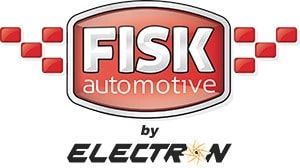Should I Trade In My Car or Repair It?

The question of whether you should shell out for car repairs or buy a brand new car is sort of like the question of the chicken or the egg — do you spend less money more often over a period of time, or lots of money all at once? However, it’s more complicated than that. Let us explain.
The truth is that there’s no true answer to this question, because your particular answer will depend on a number of factors that are unique to you and your car. Generally speaking, it’s almost always better for your budget to repair a car rather than buy new. It’s highly unlikely that repairs will outpace the cost of a new ride unless your car is either very old or very run down. If you’re wondering about the breakdown of repairs versus buying new, we’ll go into more detail below.
Even large repairs cost less than a new car.
Your eyes may bug a little at a repair bill in the thousands, but repairs of that scale don’t happen very often and they’re still only a fraction of the cost of buying new. Sure, you may be able to use that same chunk of cash as a down payment, but that’s not the entire cost of the car. You’ll still be paying your monthly fee until it’s paid off unless you can drop enough cash to buy the car outright. If your current car is paid off and still functional, it’s more cost-effective to take the repairs.
Insurance and registration costs will be higher when you buy new.
That’s how the cookie crumbles, as the saying goes. New cars have new bells and whistles, but they also come with other costs that you don’t see on the price tag. When you buy new, you can expect to see a sizeable hike in your yearly fees. It’s something to consider before signing a contract.
A new car’s value will drop almost immediately.
If you think you’re driving off the lot with a car worth as much as you paid for it, you’re unfortunately wrong. From the moment you take your shiny new ride home, it starts to depreciate in value. In the first year alone, most cars lose over 20% of their value. With a car you already own, you don’t have to worry about depreciation because it’s already factored into the current value of the car.
Keeping a car longer is more cost-effective than buying new every few years.
This seems like a no-brainer, but our media really pushes the idea that you should be trading in your car for a new model every few years. Driving your car for longer, like 6 years or more, before getting a new one means you’re getting more value out of your current ride and not constantly beholden to car payments. Once you see that extra cash in your account every month, it’ll be hard to let it go. So don’t!
Now, of course there are valid reasons to drop the old and bring in the new. If you have safety concerns from an older car, you may be ready to upgrade to a safer model. If your family has expanded and you need more room, your tiny coupe may have to go. In the rare cases where repairs are actually exceeding the value of the car, that’s another factor to consider. As we mentioned above, there’s no 100% right answer, so you have to do what’s right for you.
Fisk Auto is always here to answer your questions or even help you see whether repairs are better for your budget. Just
give us a call anytime!

